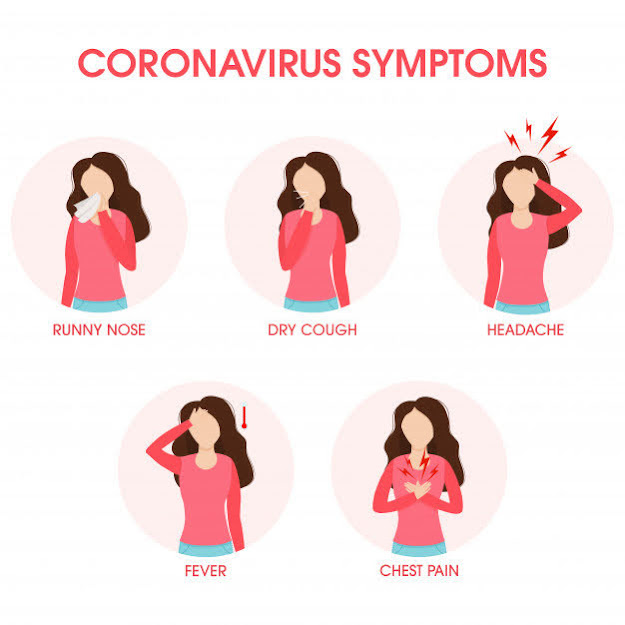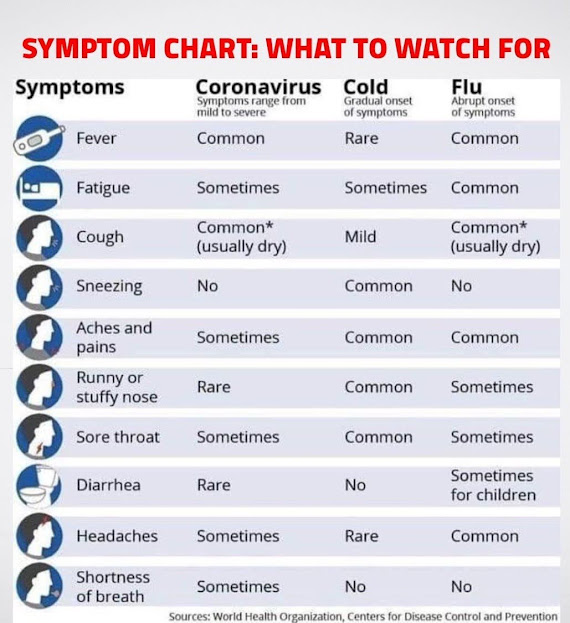Understanding this, the day is passing. Meanwhile, the disease is spreading like wildfire. This is because the symptoms of this infection and the symptoms of the flu are almost the same. Fever, runny-cough, stuffy nose, shortness of breath. But doctors have found some very subtle differences. The first dry cough in a corona infection. She has shortness of breath and fever. In case of flu, water will run through the nose first. Which is not the case in Corona. At the same time there is no sore throat in this disease. Understand the difference between the two types of infections before you get distracted by panic.
Covid-19
Many people in our country suffer from fever, cold, cough, chills and body aches several times a year. In most cases, this problem is usually due to cold and flu. The recent outbreak of the epidemic Kovid-19 has paralyzed the lives of millions of people worldwide. Some of the symptoms of the epidemic are similar to those of the common cold and flu. Although these common symptoms can be seen in the human body, it is difficult for a professional doctor to understand whether a person has a cold or the flu or Covid-19 without the necessary blood tests. In the current situation, many countries of the world including Bangladesh are facing a lot of pressure to ensure health services. Read this article to better understand the symptoms of Covid-19, cold and flu.
Symptoms of Covid-19
Covid-19 or coronavirus 2019 is spreading rapidly worldwide. Even before December last year, this new species of coronavirus was never seen in humans. There are four other species of coronavirus. However, species infections often cause mild to moderate cold-like symptoms. The newly discovered species of covid-19 can cause serious illness in certain groups in the human body. For example, people suffering from heart disease, diabetes, pneumonia, lung disease or other serious diseases are at risk of getting seriously ill with Covid-19 disease. Elderly people are among the worst affected by coronavirus in the world so far.
Symptoms of Covid-19 may include:
- Fever
- Cold
- Exhaustion (occasionally)
- Sore throat (occasionally)
- Cough (usually dry)
- Headaches (occasionally)
- Difficulty breathing or shortness of breath
- Body aches (occasionally)
The symptoms of coronavirus (Covid-19) are usually moderate to severe. Remember, a person with Covid-19 rarely suffers from upper respiratory problems, persistent colds, or sinus congestion.
Physicians should be consulted if any of these symptoms occur in people who have recently traveled to countries where Covid-19 has spread. If someone comes in contact with a patient with Covid-19 and they have these symptoms, they need to think about Covid-19.
Read
More About Coronavirus:
Symptoms of cold
During the change of seasons, many people suffer from colds. The symptoms of the common cold are much lower than those of the viral flu. You can check these symptoms to see if you are suffering from a common cold.
- Cold
- Nose closed
- Sore throat
- Cough (mild)
- Sneeze
- Fatigue (occasionally)
- Tears come
- Headaches (rarely)
- Body aches
These symptoms are mostly due to the human body's immune system against infection. The best defense against the flu virus is the human body's immune system. If you are experiencing the symptoms described, be patient and give your body a chance to resist them. The common cold will go away slowly. Typically, colds last from seven to ten days, depending on the body's immune system. Prescription drugs prescribed by doctors help reduce the symptoms of colds.
Flu symptoms
The flu is also commonly known as seasonal influenza. It is a type of viral infection in the common respiratory tract. Which in most cases infects the nose, throat and lungs. Here are some common flu symptoms:
- Fever
- Fatigue
- Cold
- Body aches
- Runny nose (occasionally)
- Sore throat (occasionally)
- Nose off (occasionally)
- Cough (usually dry)
- Diarrhea (sometimes in children)
The viral flu can usually last from five to seven days. In contrast to the common cold or Covid-19, prescription drugs can successfully cure seasonal influenza. In most cases, people infected with the viral flu recover without any vaccines. If you have flu symptoms, drink plenty of fluids at home and get enough rest. Consult your doctor to reduce fever.
What can you do to stay safe from Covid-19?
- Coronavirus is spread through sneezing, coughing, breathing and touching. Therefore, it is advisable to stay at home if there is no urgent need.
- Rinse your hands with soap and running (hot or cold) water for at least 20 seconds. If this is not possible, use an alcoholic (60 percent) hand sanitizer to disinfect hands.
- After returning home, wash the clothes you are wearing as soon as possible or leave them to dry under the sun.
- Adhere to a minimum of 8 feet social distance from other people when going out of the house.
- Avoid touching any part of your face or eyes before washing your hands.
- Use tissue when sneezing or coughing and remove the tissue in the right place.
- And of course don't forget to wear a mask when going out.
And if you follow these rules, you can easily survive the common cold and viral flu.
Related Searches
- differences among Covid-19, Cold and Flu
- What are the differences among Covid-19, Cold and Flu?
- What are the differences between Covid-19, and Flu?
- what is covid-19?
- what is cold?
- What is flu?











0 Comments